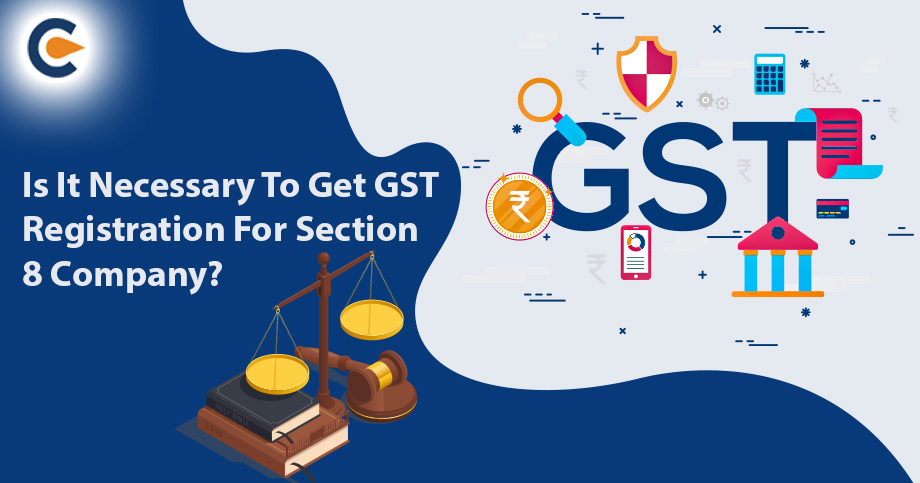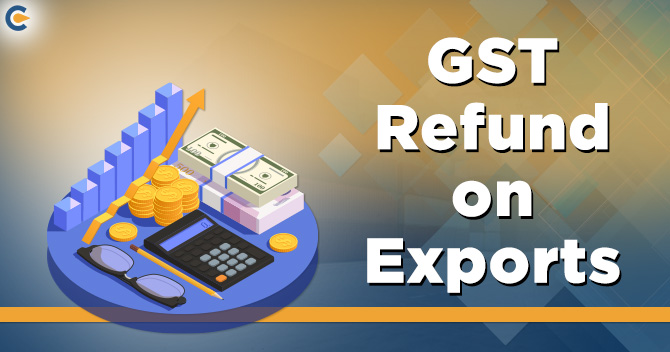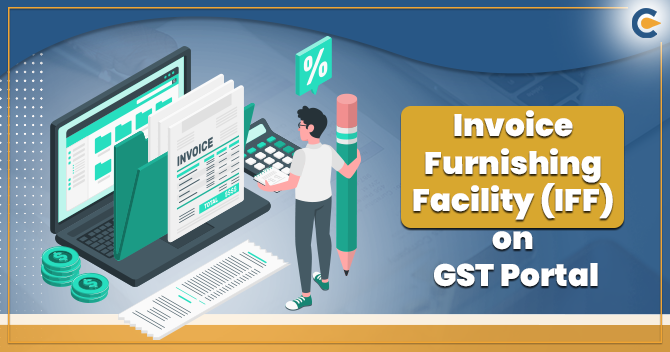The main motive behind the incorporation of Section 8 companies was to promote society’s non-profit goals, such as trade, commerce, charity, education, sports research, religion, social welfare and environment protection. In this blog, we will discuss how to get GST Registration for Section 8 Company.
Some examples of Section 8 companies:
- Reliance research institute,
- Reliance Foundation,
- Federation of Indian Chambers of Commerce and Industry
- A deemed University like Christ University,
- Over the Counter Exchange of India (OCE)
GST (Goods and Services Tax) is an indirect tax levied on the goods and services consumed domestically. This came into force on 1st July 2017. In India, all goods and services are subject to GST unless and until they are exempted from the GST Council[1]. Registration of any business under GST law’s ambit helps the entity obtain a unique number from the concerned tax authority. The GST is paid by consumers, but it is paid to the government by the businesses selling the products and services.
GST also applies to goods and services provided by Section 8 companies. This article will navigate your way through GST implications on Section 8 companies.
What is Section 8 of the companies act?
A section 8 company is registered under the Companies Act 2013 and has the following objectives:
Sports, commerce, art, science, education, research, social welfare, religion, charity, environmental protection, or any other such object; and intends to apply its profits, if any, or other income in promoting its objective; and intends to prohibit the payment of any dividend to its members.
Benefits of GST Registration for Section 8 Company
Following are the benefits of GST Registration for Section 8 Company:
- Exemption to Donors: Any donation received from a Section 8 company is given tax exemption under section 80 G and Section 12 of the Income Tax Act, 196.
- Members have limited liability: For the shares subscribed, members of the sec 8 company have limited liability, as they are not liable for the losses incurred to the company.
- Tax benefits: The Company enjoys all tax benefits available in Section 80 G of the Income Tax Act, 196, as CARO (The Company Auditor’s Report Order) does not apply to Section 8 companies.
- No Minimum Capital: As there is no minimum capital required at the time of incorporation, therefor Section 8 companies have the flexibility to alter their capital structure at any time as per their requirement.
- No requirement of stamp duty: Section 8 companies are not required to pay the stamp duty imposed on MOA (Memorandum of Association).
Eligibility for Incorporation of Section 8 Companies
Following are the eligibilities that need to be fulfilled by Section 8 companies:
- An individual or HUF
- Two or more two persons who will act as directors and fulfil all the compliances of the company
- At least one of the directors needs to be a resident of India
- The incorporation of the company needs to be solely for charity, education, sports research, religion, social welfare and environmental protection
- There should be no distribution of the company’s profits directly or indirectly to its shareholders and board of directors.
- Founders, boards of directors, and company members are not permitted to receive remuneration in cash or in kind.
Application of GST Registration for Section 8 Company
The act applies to Section 8 companies in two ways:
- As the provider of goods and services
A trust, society, and Section 8 companies are included in the definition of a taxable person under the GST law. Still, an exception to this rule is: if these entities engage in economic activities, such as trade and commerce, they will not be considered taxable people under the GST.
However, the Authority of Advance Ruling (AAR) for GST in Maharashtra ruled that goods and services provided by charitable organisations for fee classification will come under the preview of GST.
Further, it was also stated that all the organisations must register under GST provisions if their annual turnover from selling these goods and services is above INR 20 lakhs.
E.g., Any Section 8 company providing a literacy course to women must register under GST.
Therefore this ruling puts all the doubts to rest regarding the applicability of GST on Section 8 companies.
List of Charitable Activities That are Covered under GST Law
- Educational or skill development programs relating to:
- Persons that are above the age of 65 years and residing in rural areas
- Prisoners
- Persons who are physically or mentally abused
- Traumatised persons.
- Children who are abandoned, orphaned or homeless.
- Advancement of religion, spirituality and yoga
- Preservation of environment
- Public health by:
- Providing care and council to persons who are afflicted with AIDS OR HIV
- Treating terminally ill people or persons suffering from severe mental or physical disabilities.
- Providing care or counselling to people addicted to narcotics, drugs, or alcohol.
- Spreading public awareness regarding family planning or prevention of HIV infection.
- As the buyer of goods and services
When we talk about the income earned by the nonprofits, it only gets the tax exemption from the direct taxes, i.e. tax exemption under the income tax law, but no such exemption is provided under the GST law.
E.g., If a non-profit is running its business in a commercial office, it cannot claim the exemption from GST on rent by showing its 12A or 12AA certificates.
Therefore, GST applies to non-profits on all the goods they have purchased or the services they have received.
However, there is an added point: RCM (Reverse Charge Mechanism) is applicable when purchasing any legal service or transporting goods.
(Any person required to pay tax under RCM compulsorily must be registered under GST.)
Application of RCM on non-profits
Under the following situation, RCM is applied to section 8 company:
- Purchase of legal services
If nonprofit wishes to engage an advocate’s legal services, so for the fee charged by the advocate, the nonprofit must register itself under GST and then pay the GST.
- Transport of goods
RCM also applied to the Goods and Transport agencies.
Documents required for Obtaining GST Registration for Section 8 Company
The following documents are required for GST Registration for Section 8 Company:
- Date of formation of the company
- Pan Card of society/Trust/NGO
- Passport size Photographs and PAN Card of Promoter/ Partners
- Contact Information (it includes: mailing address, website address and telephone number)
- Business registration number(BRN) of the company
- Identification number (INN) of the company
- Types of business activity carried out by the company
- Purpose and objectives of the company
- Annual turnover of the company
- Types of business activities carried out by the company in the past years
Conclusion
This article explains all GST (Goods and Services Tax) provisions that apply to Section 8 companies. Companies incorporated within Section 8 of the Companies Act of 2013 contributed significantly to the betterment of society. Their sole purpose for incorporation is to advance a society’s non-profit goals, such as trade, commerce, charity, education, sports research, religion, social welfare, and environmental protection. As a result, section 8 companies are included in the GST law’s definition of a taxable person.
Read Our Article: GST Online Registration Process: A Complete Guide











